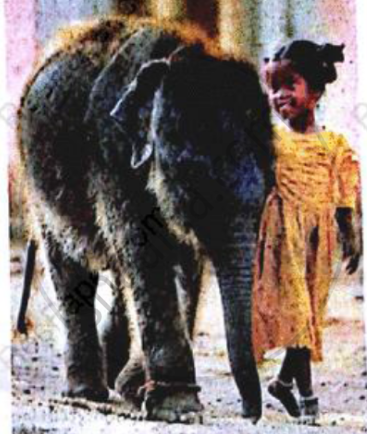Advertisements
Advertisements
प्रश्न
How does the seemingly small incident described in the story reveal a significant truth about life?
उत्तर
The short story,“The Old Man at the Bridge” is set during the Spanish Civil War—the old man is a civilian in loyalist territory; the narrator is a loyalist sympathizer, and it is only a matter of time before the fascists advance on the town from across the bridge. The old man is weak and weary; at the beginning of the story all the peasants in the area are migrating to safety, away from the war, but the old man cannot make it. He is sitting in the dust by the side of the road, despairing, clinging to the memory of his home and his animals. He was taking care of animals—specifically, two goats, a cat, and four pigeons, in his hometown of San Carlos, before the town was evacuated due to artillery fire. The old man had no family beyond these animals, and he could not bear to leave them, so much so that he was the very last person to leave San Carlos. When asked about his loyalties, the old man replies, “’I have no politics … I am seventy-six years old. I have come twelve kilometers now and I think now I can go no further.’
The old man refuses to get on a truck, because the trucks are headed towards Barcelona and he knows no one in that direction. He no longer has the will to move on. This reveals a fact of life: if a person has no will to live, too often he will not live. The animals were all the man had, and now that he had abandoned them, he has nothing. Life is defined by our relationships, by what we value, and once those things are gone, once we have nothing to live for, it takes rigid determination to push on. For the old man, his remaining years will prove to be lonely and harsh. And so he chooses rather to stay and face his fate. It is not cowardly, it is not weak—it is reason.
In short, the old man has come to terms with his death, and with the fact that he cannot now control what happens to his animals. He comes constantly back to this point, fretting over the fate of his animals—over his surrogate family, as it were. Even as he resigns himself to death, his mind is on the only things that gave his life meaning. “I was only taking care of animals,” the man repeats several times. He was living a simple life, and a contented one, and yet the war disrupted this contentment and will lead ultimately to the man’s demise. War is an interruption; war separates people from all they know and love, and often these individuals cannot bounce back from the trauma. War destroys in more sectors than the battlefield. After all that he has given up, after all that he has lost, the old man is lucky, according to the narrator, only in that the weather has prevented the fascists from sending out their planes that day—“That and the fact that cats know how to look after themselves,” a comforting thought for the old man in his last days.
APPEARS IN
संबंधित प्रश्न
Study the picture given below. Write a story or a description or an account of what it suggests to you. Your composition may be about the subject of the picture or you may take suggestions from it; however, there must be a clear connection between the picture and your composition.

Below is a topic for essay writing. Follow the steps listed above to write on these topics.
Human Population Grows Up
Discuss with your partners
Reading plays is more interesting than studying science.
Search in your college library or on the internet for at least five stories where a king or any great person has forgiven a losing king, culprit, or offender. There are many such stories that you might have read in your history books. One such story is of Alexander and Porus. Find at least five stories and write their summarised version in your notebook.
Elements of Planning An Interview : (Group Activity)
Form groups and discuss each element of planning an interview and prepare notes on each element.
| Format - Structure | ______ |
| Size/Length - How much | ______ |
| Do’s and Dont’s - Rules and Regulations | ______ |
| Type of Questions - Yes/No questions or Wh Type. | ______ |
Form groups of 5-8. In each group, rewrite the story in the form of a play. Present scenes from your play in the classroom.
Imagine that you have parked your vehicle (two-wheeler)/ bicycle inside the school premises. You find it missing in the evening. Write a complaint to the head of the school regarding this issue.
You are waiting for your exam results. ______
What were the strange instruments the nurse carried to the surgery? How did the waiting patients interpret her act?
Write slogan to create awareness of the following topic using the tips given above.
- Junk food
- Labour Day
- Save Water
- Yoga
- Blood Donation
